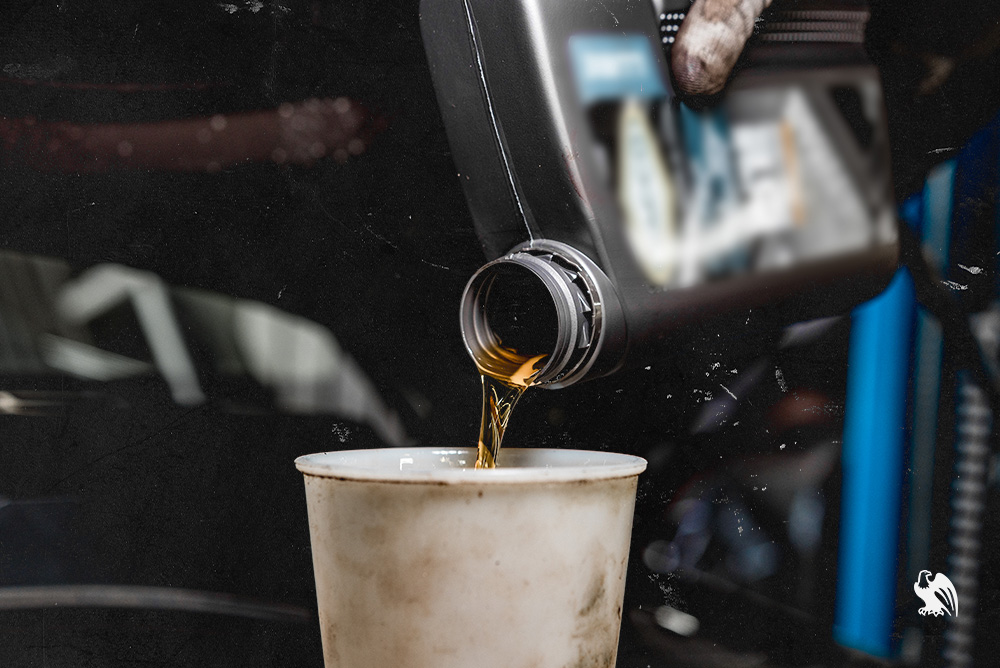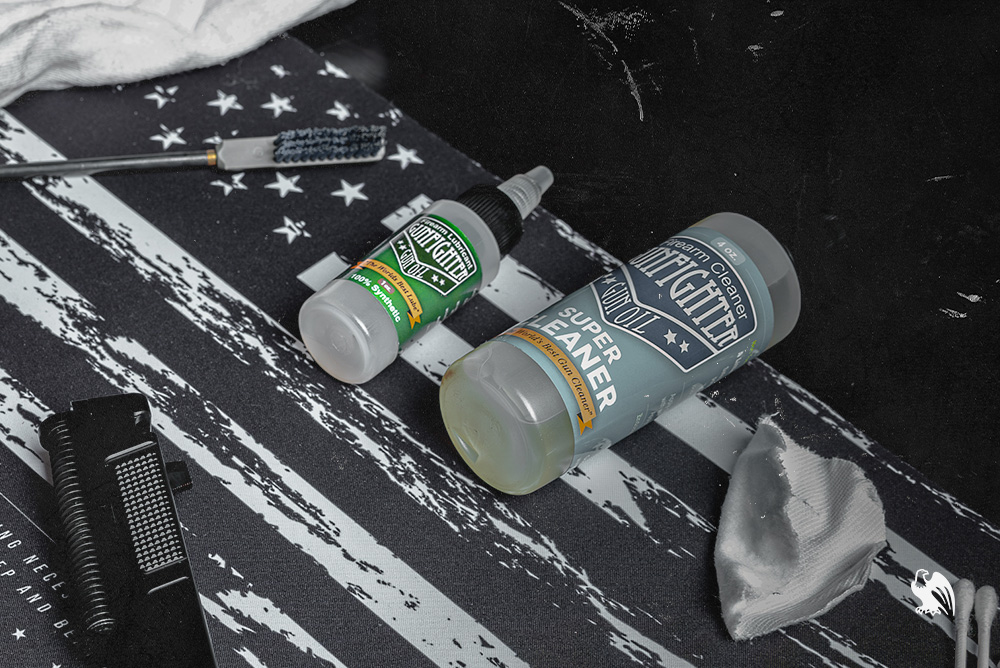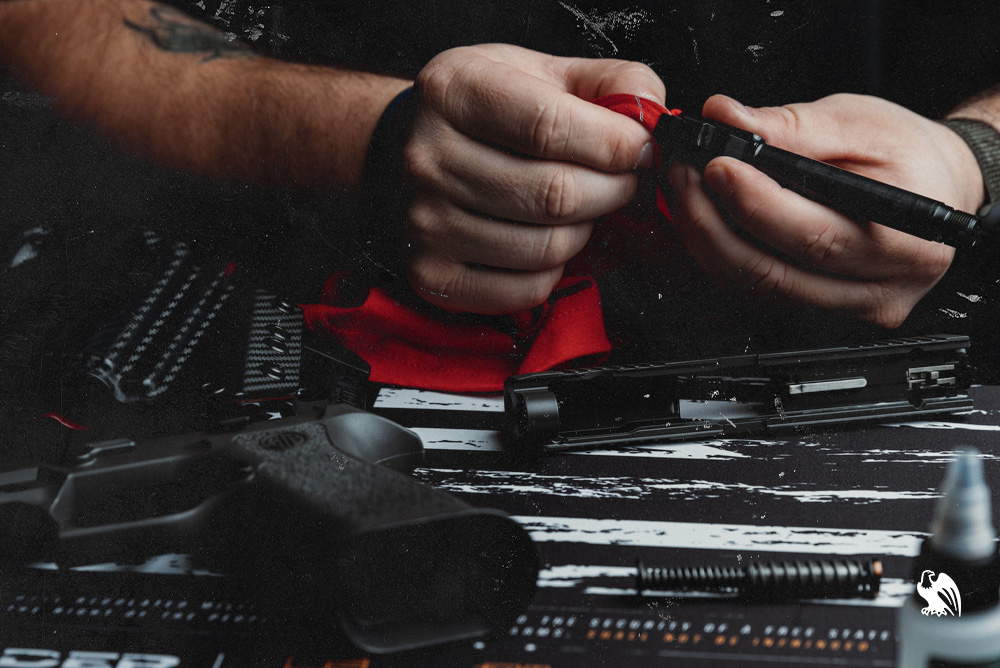Motor Oil vs Gun Oil: Smart Hack or Bad Idea?

Whether you're new to the world of firearms or a seasoned enthusiast, there's a good chance you've heard the debate: can motor oil replace gun oil? Some swear by it, claiming it works just as well — or even better — than dedicated gun oil. But before you start reaching for that quart of 5W-30, there are some important factors to consider.
Using motor oil on guns is a bit of a double-edged sword. While it is a fantastic lubricant that will make your gun’s action slick and smooth, it lacks the rust inhibitors found in gun oil that are crucial for protecting your firearm’s metal surfaces.
In this article, we'll break down the differences between motor oil vs gun oil, examine the risks and benefits of using motor oil on your firearm, and offer advice on what you should be using to keep your gun in top shape.
Motor Oil vs Gun Oil: What’s the Difference?
To the untrained eye, motor oil and gun oil might seem like they could be interchangeable. After all, both are designed to reduce friction and protect metal parts, right? Well, yes, but that’s where the similarities end.
Motor oil is specifically engineered to work in the high-heat, high-pressure environment of an engine. It contains additives that help it perform under these conditions, such as detergents, anti-foaming agents, and viscosity modifiers. These are great for your car, but not necessarily for your gun.
On the other hand, gun oil is formulated with the specific needs of firearms in mind. It not only lubricates but also provides rust protection — a critical factor when dealing with metal components that are exposed to moisture and varying temperatures.
Is Motor Oil a Safe Gun Oil Substitute?
So, can you use motor oil on your gun? Technically, yes. Should you? That’s where things get a bit murky.
In all fairness, motor oil does an excellent job of lubricating. When applied to the moving parts of a firearm, it can make the action feel incredibly smooth. For some gun owners, this alone might be enough to consider using it as a substitute.

Here’s where motor oil falls short. Unlike gun oil, motor oil lacks rust inhibitors specifically designed to protect against corrosion. Firearms are often exposed to the elements — whether that’s from handling, moisture, or temperature changes. Without adequate rust protection, your gun could be at risk of pitting and other forms of corrosion.
Motor oil also isn’t necessarily formulated to be safe on all the materials found on firearms, such as wood stocks or certain synthetic materials. Over time, it could degrade these materials, causing damage that would be costly to repair.
What SHOULD I Oil My Gun With?
When it comes to keeping your firearm in top condition, sticking with products designed for the job is always the best route. Here’s what you should be using:
Cleaning Solvents: Before applying any oil or grease, it’s important to properly clean your firearm. Using a good quality solvent from Hoppe’s or M-Pro 7 will help remove carbon, lead, and other fouling that can build up with use. This ensures that when you apply your oil or grease, it can do its job without obstruction.
Gun Oil: As we’ve established, gun oil is formulated specifically for firearms. It provides the lubrication needed for smooth operation and, as importantly, the rust protection that’s essential for long-term durability. Products like BreakFree CLP, Hoppe’s No. 9, or Otis Technology lubricants are popular choices among gun owners. These brands have a long history of reliability and are trusted by professionals and enthusiasts alike.

Gun Grease: For parts of your firearm that experience high friction, such as the slide rails on a semi-automatic pistol, gun grease can provide an extra layer of protection. Unlike oil, grease is thicker and stays in place longer, offering sustained lubrication in critical areas.
Rust Preventatives: If you live in a humid environment or store your firearms for extended periods, using a rust preventative like Birchwood Casey Barricade or CorrosionX is a smart move. These products create a barrier that prevents moisture from reaching the metal, reducing the risk of rust.
Most firearm manufacturers include a guide on the best oiling and maintenance practices for your gun. It’s always best to refer to their recommendations before using a cleaner or tool on your weapon.
Summary

So, is using motor oil on your firearm a smart hack or a bad idea? The answer is a bit of both.
Motor oil vs gun oil is a debate that boils down to what you prioritize. If you’re in a pinch and need a lubricant, motor oil can work temporarily, especially on the internal parts of your firearm. It will make the action feel slick and smooth, but it won’t offer the same level of rust protection as gun oil. Over time, this could lead to corrosion that could affect your gun’s performance.
For the best results, stick with products specifically designed for firearms. Gun oil on the outside will protect against rust, while motor oil could be used on the inside if you just really prefer its lubricating properties. However, for long-term care and peace of mind, investing in high-quality gun oil is always the safer bet.
To learn more about gun cleaning and maintenance, check out our guide on How to Clean a Handgun Properly, as well as the article How Often Should You Clean Your Gun? Everything You Need to Know. If you’re looking for a new IWB, OWB, or pocket carry holster, head to our Holsters by Gun Model page for Kydex holsters that are custom-made for your weapon of choice.
Interested in items beyond holsters? Take a look at our Resources Page for links to recommended products like lights, lasers, first aid, maintenance, and more. Or, browse our selection of apparel, gun belts, and accessories. And be sure to visit our sister company, GeoGrit, to view our collection of durable, RFID-blocking minimalist wallets.
To stay up-to-date on all the latest Vedder Holsters content and offerings, follow us on Facebook, Instagram, Twitter, YouTube, and TikTok. For more shooting and concealed carry resources, check out our blog or download our FREE e-book “The Concealed Carry Blueprint.” To discover which states honor your carry permit or to learn about CCW laws across the U.S., explore our interactive Reciprocity Map.
This article is provided for informational purposes only. Any activity involving firearms is potentially dangerous and could result in property damage, serious injury, disabling injury or death. All firearms must be handled in a responsible manner and in accordance with applicable law. The author disclaims any responsibility for the accuracy, misuse of, or misinterpretation of information contained in this article.
*This page contains affiliate links. When you purchase a product included on this list, we receive a commission at no extra cost to you.

